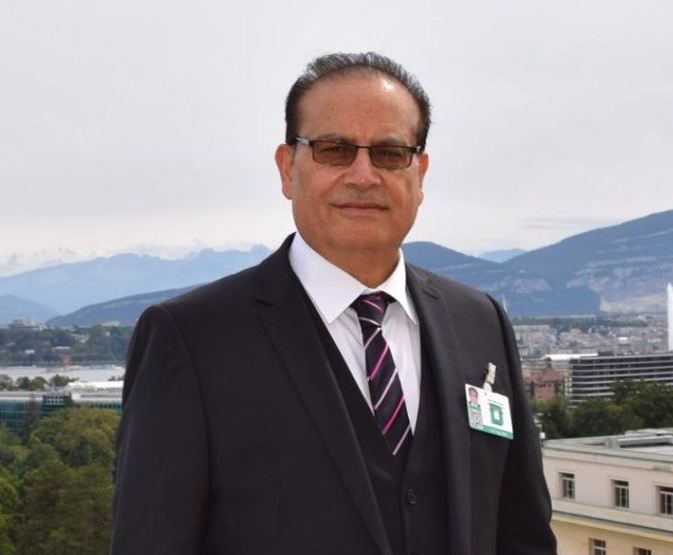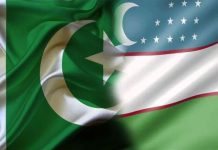By: Qamar Bashir
“Nawaz Sharif’s much-anticipated address to the PML(N) Central Working Committee was filled with expressions of past grievances and complaints against the judiciary, naming specific judges, and against the establishment, though without naming individuals, regarding the removal of his government three times: first in 1993, second in 1999, and third in 2017. He continues to wonder and seek answers about his unceremonious removal from power, which he believes was part of conspiracies against him, his government, and the country as a whole.
He questioned why, in the morning, he was a prime minister and by evening, he was labeled a hijacker. He questioned how a three-person bench, unelected and sitting in the Supreme Court, could declare an elected Prime Minister unfit for office.
He asserted that he would continue to seek answers to these questions for the rest of his life, vowing not to rest until all those involved in conspiracies against him, his government, his party, and his country are brought to justice.”
While indicating the masterminds behind the conspiracies, he pointed to former Chief Justice Saqib Nisar, who, in an audio leak, purportedly stated the intention to keep Nawaz Sharif and Maryam in prison while bringing Mr. Imran Khan to power. Nisar allegedly instructed an accountability judge to decide the case within six months and appointed Ejaz ul Hassan as a monitoring judge.
He then referred to another conspiracy involving Mr. Imran Khan, who was summoned to London by former ISI Chief Zaheer Ul Islam. Pervez Elahi and Tahir ul Qadri were also present, collectively hatching the conspiracy to remove his government through long marches and dharnas in 2013. Although the plan fizzled out, it resulted in significant costs for the nation, including delays in the visit of the Chinese President and the launch of CPEC.”
“Interestingly, all the answers to the questions he posed seem to rest with him, and perhaps no one can answer these questions better than him.
His first question was: How could three unelected judges of the Supreme Court remove an elected prime minister from power? According to him, such an occurrence had never happened anywhere else in the world.”
He has been the prime minister for three terms, he should have brought a constitutional amendment to give immunity to the prime minister from being removed by judges but he did not do so. There are many countries which have granted immunity to the Prime Ministers and the presidents. France’s Constitution grants the President immunity from prosecution during their term, while Italy’s Parliament once passed a law granting Prime Minister Silvio Berlusconi immunity. In Kenya, the President is provided immunity from criminal proceedings during their tenure, and the Philippines’ Constitution offers similar protections to its President.
The claim that “nowhere in the world judges remove elected prime ministers” is not accurate. Courts have played a crucial role in removing elected officials in various countries. In Pakistan, Prime Minister Yousaf Raza Gillani was disqualified by the Supreme Court in 2012 for contempt of court, Thailand’s Constitutional Court removed Prime Ministers Samak Sundaravej in 2008 for a constitutional violation and Yingluck Shinawatra in 2014 for abuse of power. Italy’s Prime Minister Silvio Berlusconi faced multiple legal challenges, leading to his resignation in 2011. In South Korea, the Constitutional Court upheld the impeachment of President Park Geun-hye in 2017 amid a corruption scandal.
His second question was why his government was removed three times during his political career.
“The answer to this question also rests with him. All the parties and leaders of the country have been utilizing the establishment to achieve political objectives. The establishment has become so powerful and has wielded these powers for so long that it now assumes the role of kingmaker and is reluctant to relinquish this influence. PML(N), under his leadership, allegedly benefited the most from the establishment’s role as kingmaker. Analysis, opinion-makers, political scientists, and election watchdog organizations are largely of the opinion that without the establishment’s outright support, PML(N) would not have been able to form governments at the center and in Punjab. If he had learned a lesson, he would have refused the establishment’s help for his return to the country, absolving himself of all cases and playing a decisive role in winning his seat. He should have agreed to PTI’s demand that the election result should have been based on Form 45 and not on Form 47, which is derived from Form 45 and was allegedly manipulated. If he and PML(N) do not learn to refrain from seeking the establishment’s help, then what happened to Nawaz Sharif and what is currently happening to Imran Khan will continue unabated.”
His third question was that when the politicians have been subject to lethal accountability processes both by the courts and the establishment, why the judges and the establishment are out of the purview of the accountability. The answer to this question also rests with him.
While Nawaz Sharif’s three terms as Prime Minister saw significant political events, his failure to implement necessary reforms for ensuring the accountability of judges and the military remains a critical oversight. To address this, several constitutional reforms could be introduced: establishing an independent accountability commission to oversee all branches of government, implementing a robust judicial accountability process through an independent judicial council, subjecting military officials to civilian judicial review, strengthening parliamentary oversight committees, protecting whistleblowers who expose misconduct, mandating regular asset declarations for judges and military officials, and reinforcing civilian control over the military. Examples from countries like the United States, India, and South Korea demonstrate that these measures can promote transparency and accountability, ensuring balanced governance and reducing corruption in all branches of government.
“Now that PML(N) is once again in power, he should introduce constitutional reforms to end his quest for seeking answers.”
By: Qamar Bashir
Former Press Secretary to the President
Former Press Minister to the Embassy of Pakistan to France
Former MD, SRBC












